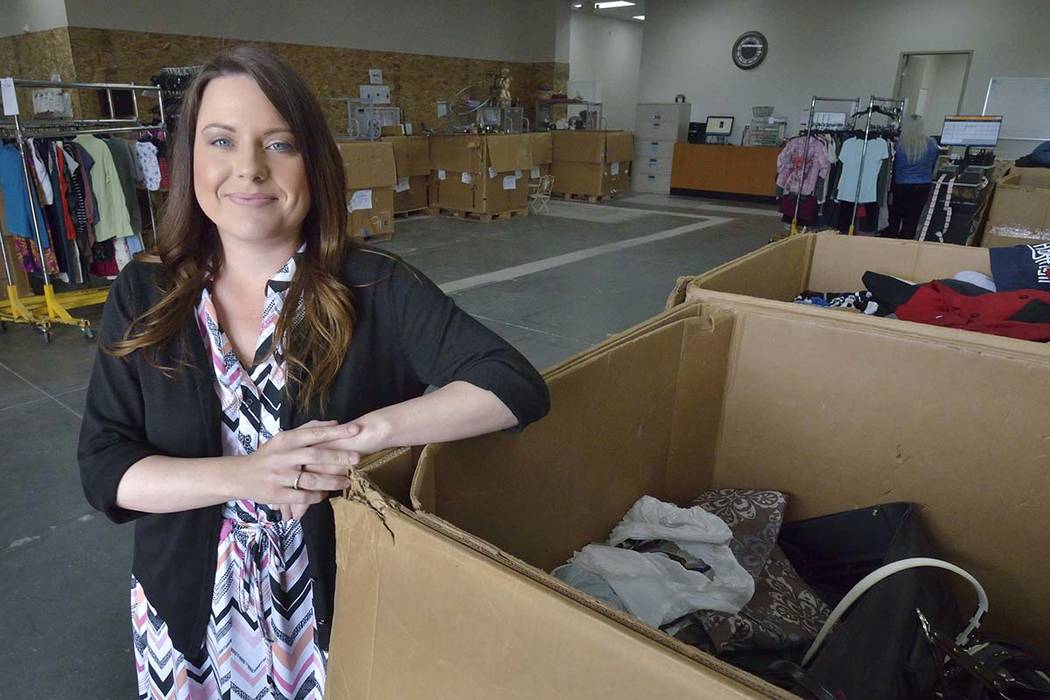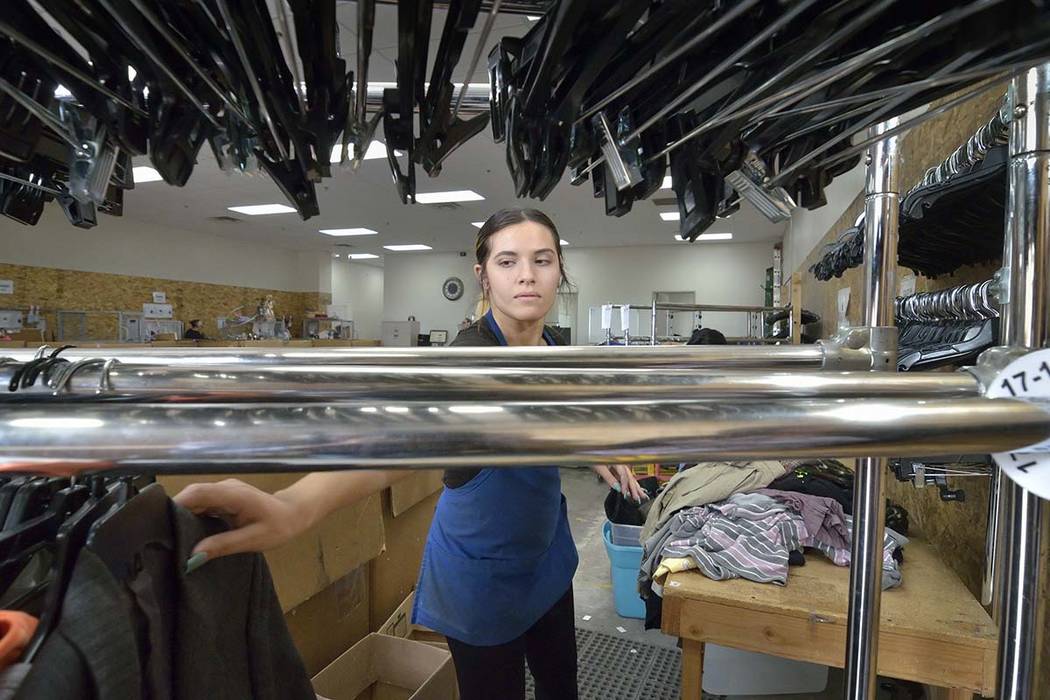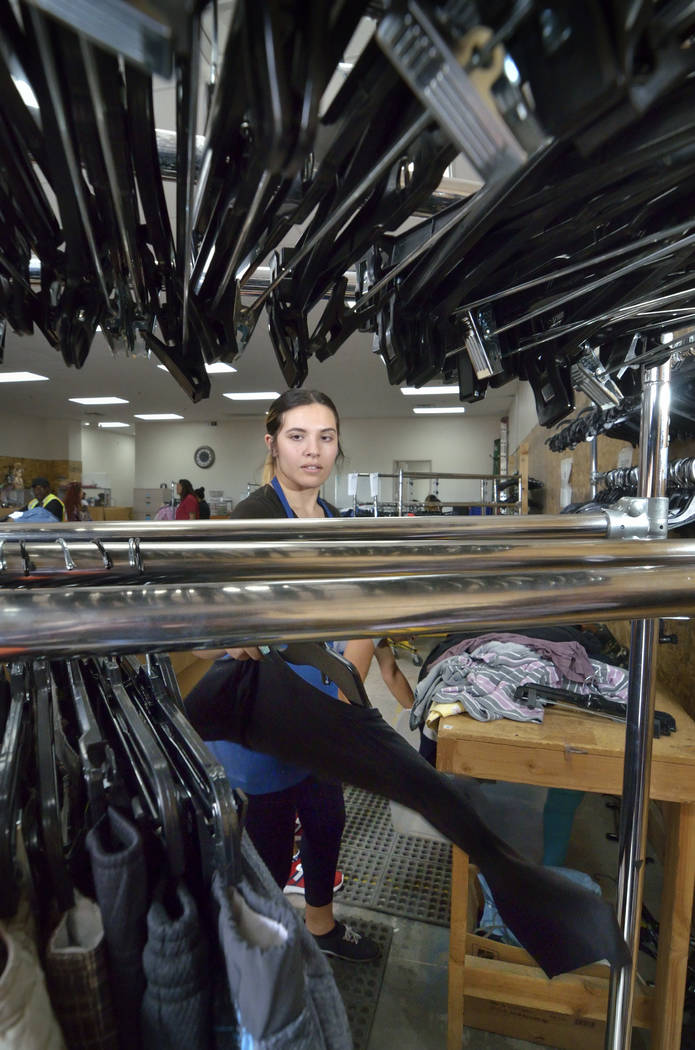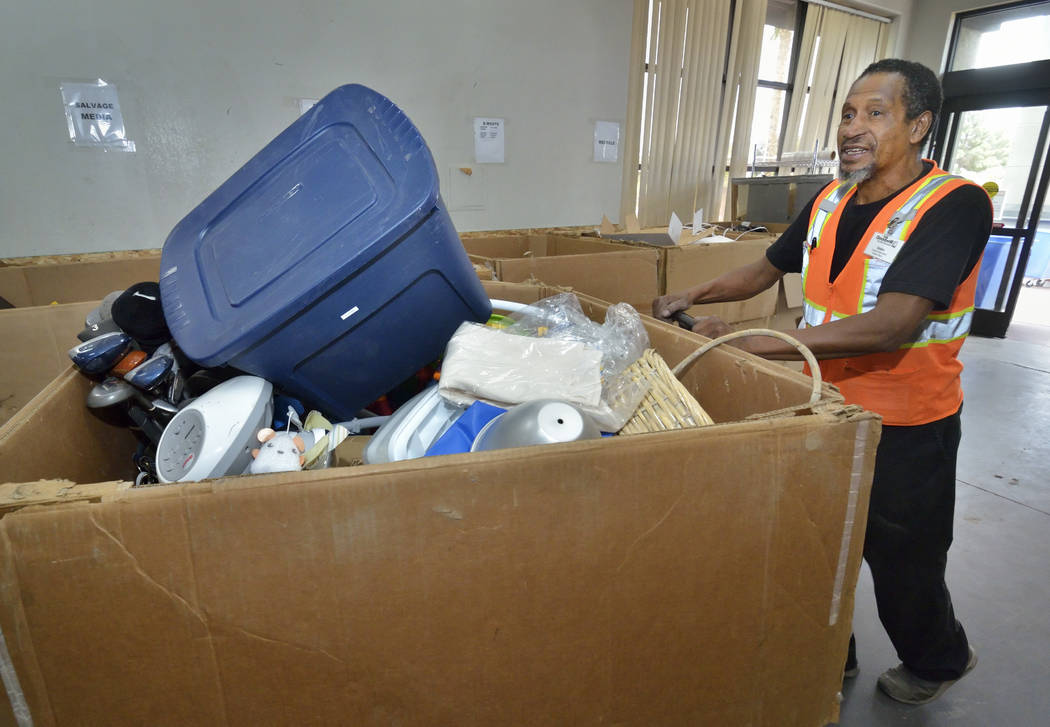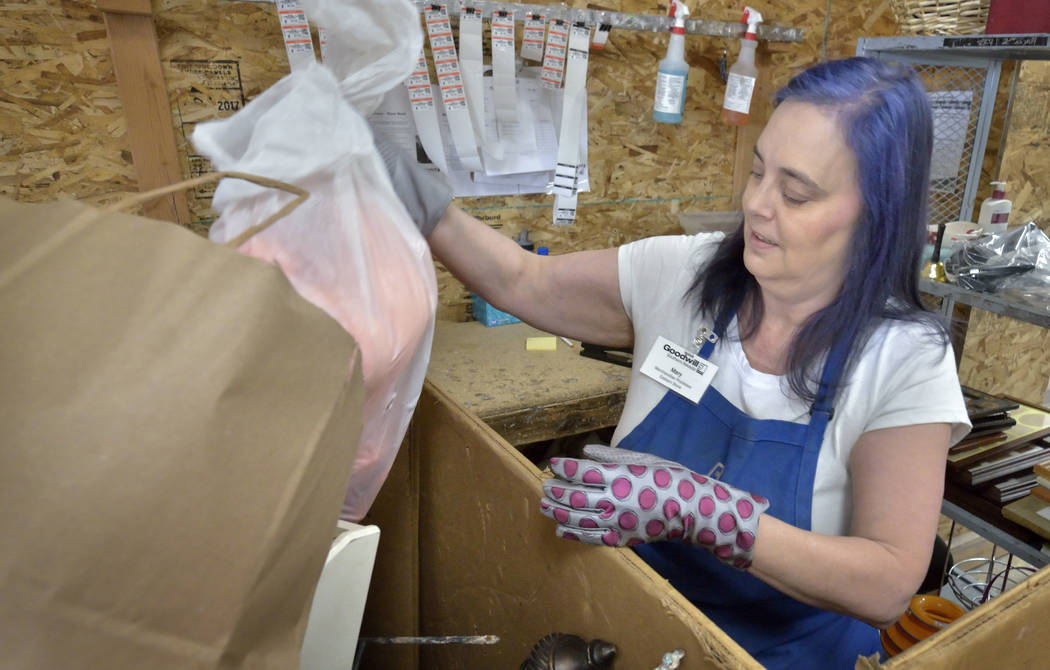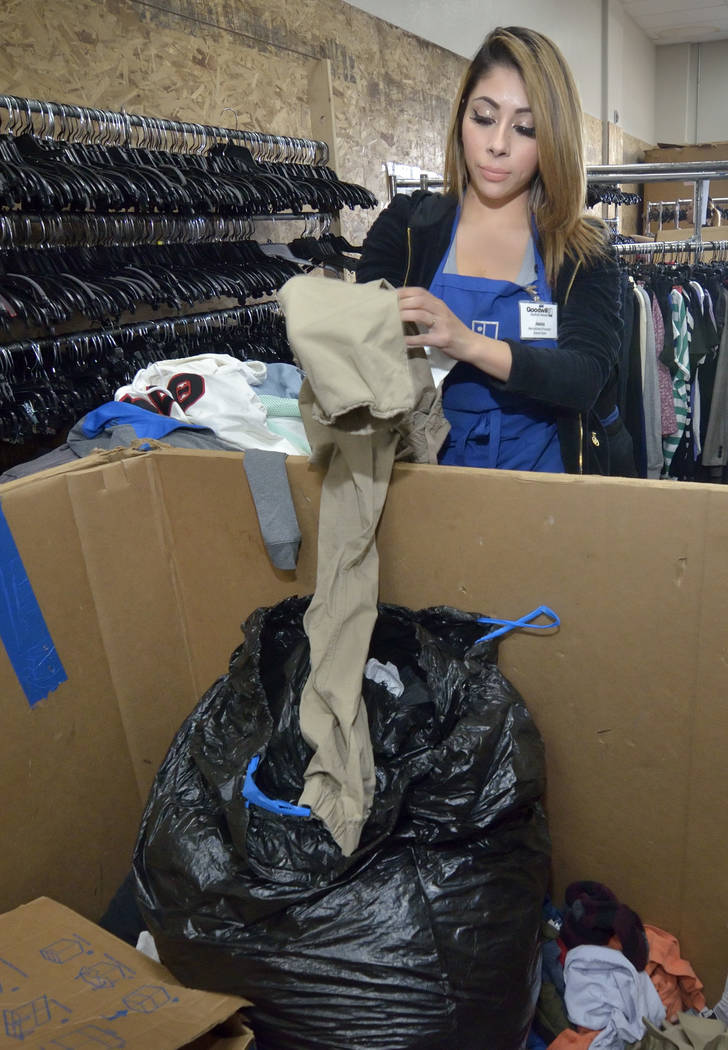Goodwill of Southern Nevada emerges from bankruptcy
Goodwill of Southern Nevada emerged from bankruptcy last week, almost two years after it filed for Chapter 11.
The thrift-store chain’s reorganization plan, approved this month by U.S. Bankruptcy Judge Bruce Beesley, took effect Thursday, court records show.
The plan calls for some debt forgiveness and a new debt-payment structure, and cements previously renegotiated retail leases, according to Goodwill CEO John Helderman.
Its exit from bankruptcy opens a new chapter for the nonprofit retailer and career-services organization, which filed for Chapter 11 after an aggressive expansion and hefty bond sale, and after it fell behind on its rent at most stores.
Goodwill had 21 stores and about 1,000 employees at the time it filed for bankruptcy protection. It now has 17 locations and roughly 800 employees, Helderman said in a recent interview.
Helderman, who joined as interim chief shortly before the bankruptcy and plans to leave to run his own casino-equipment business, said almost all of those in upper management who previously ran Goodwill no longer work there. He also said stores are more focused on the backroom, where donations are processed.
“We really changed the whole culture of the company,” he said.
‘Executed it poorly’
Founded in 1975, Goodwill Industries of Southern Nevada Inc., as the company is formally known, sells donated clothing, electronics, toys, and other goods. It also grew fast coming out of the Great Recession, as Goodwill reportedly had just eight stores as of spring 2012.
Helderman said the ensuing expansion wasn’t “a bad idea,” but management “executed it poorly.”
He said the company took on rents that were too high, adding Goodwill “fell in love” with so-called build-to-suit projects, or custom-built stores. Five build-to-suit locations were developed for Goodwill between 2015 and 2017, he said.
Goodwill also issued around $22 million in bonds in late 2015. Helderman said the group borrowed the money mainly to buy three of the custom-built stores, but also to refinance some debt.
However, retail sales were far from robust, and stores had an “overabundance of labor,” according to a mid-2017 management consultant report from Jim Martin, president and CEO of the Goodwill networks in Eugene, Oregon, and Alaska.
Goodwill of Southern Nevada was averaging $22 of sales per labor hour, Martin wrote. Nationally, the average was $33 per hour, he indicated.
Martin also said in the report that Goodwill of Southern Nevada should consider “cutting all costs not related to revenue generation,” that loss-prevention practices “are ignored throughout the retail stores,” and said it should review the “storage and processing for handling HAZMAT materials,” adding: “It is unsafe and would likely result in an OSHA violation and fine.”
Moreover: “Excuses and laying blame on others for poor performance are tolerated at every level” of Goodwill of Southern Nevada, he wrote.
Big growth, then bankrupt
Former Goodwill of Southern Nevada chief executive Steve Chartrand left the company in May 2017 after about 20 years there. At the time, he declined to tell the Review-Journal why he left.
Helderman declined to discuss the reasons for Chartrand’s departure.
Chartrand, now chief operations officer at Las Vegas nonprofit Opportunity Village, could not be reached for comment this week.
Helderman came on as interim CEO the same month Chartrand left. Then in August 2017, Goodwill filed for bankruptcy.
By that point, Goodwill was behind on its rent at probably 15 stores, with landlords poised to “kick us out,” according to Helderman.
He initially expected to run Goodwill for only 90 days. Nearly two years later, Helderman is eyeing the exits, saying: “We’re looking for my replacement right now.”
He also said Goodwill expects to open a new store this year but will be “very selective” about it.
Contact Eli Segall at esegall@reviewjournal.com or 702-383-0342. Follow @eli_segall on Twitter.



